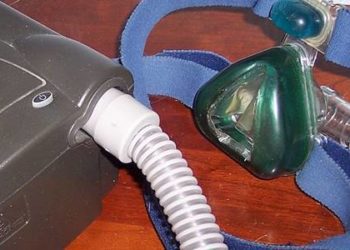Antidepressant augmentation associated with improved outcomes in treatment-resistant geriatric depression
1. In older adults with treatment-resistant depression, aripiprazole-augmentation significantly improved psychological outcomes compared to bupropion-augmentation or switching to bupropion.
2. In older adults with treatment-resistant depression, bupropion-augmentation was associated with a greater risk for falls than aripiprazole-augmentation.
Evidence Rating Level: 1 (Excellent)
Study Rundown: Major depressive disorder (MDD) is a common condition among older adults and is often challenging to treat. This study compared treatment pathways, such as augmentation or antidepressant switching, for older adults with treatment-resistant MDD. All groups saw improvements in psychological well-being T score. However, the most significant difference in the change from baseline was seen between the aripiprazole-augmentation group compared to the switch-to-bupropion group. Improvements in psychological well-being T score were also seen in the lithium-augmentation and switch-to-nortriptyline groups. Changes in Montgomery–Åsberg Depression Rating Scale (MADRS) were seen in all groups, with the greatest change in the aripiprazole-augmentation group and the least in the switch-to-bupropion group. The percentage of patients in remission was similar between the aripiprazole-augmentation and bupropion-augmentation groups and the least in the switch-to-bupropion group. An improvement in MADRS score was greater in the switch-to-nortriptyline group compared to the lithium-augmentation group. The percentage of patients in remission was also more significant in the switch-to-nortriptyline group compared to the lithium-augmentation group. A limitation of the study is that previous trials of antidepressants were not standardized, and the existing antidepressant that was augmented was not standard; this would introduce a significant confounder. Additionally, there was no placebo-control group, and participants were not blinded to the group they were in, which could also introduce a psychological bias.
Click to read the study in NEJM
Relevant Reading: Maintenance or discontinuation of antidepressants in primary care
In-Depth [randomized controlled trial]: The Optimizing Outcomes of Treatment-Resistant Depression in Older Adults (OPTIMUM) trial is a multisite investigation of augmentation compared to switching strategies for treatment-resistant depression in older adults. In Step 1, patients are randomly assigned to augment their current antidepressant with either aripiprazole or bupropion or a switch to bupropion. Participants who did not see improvement or did not achieve remission would be randomly assigned to Step 2 (augmentation with lithium or switch to nortriptyline). The primary outcome was psychological well-being, and the secondary outcome was the MADRS. All groups saw improvements in Step 1 with regard to their psychological well-being T score. However, the most significant difference in the change from baseline was seen between the aripiprazole-augmentation group compared to switch-to-bupropion group (2.79 points; 95% Confidence Interval [CI], 0.56 to 5.02; p<0.014). In Step 2, improvements in psychological well-being T score were also seen in the lithium-augmentation group (3.17 points; 95% CI, 1.12 to 2.69) and switch-to-nortriptyline group (2.18 points; 95% CI, 0.10 to 4.26). Improvements in MADRS scores were observed in the aripiprazole-augmentation group (-7.60, 95% CI, -9.20 to -5.99), bupropion-augmentation group (-7.23, 95% CI, -8.86 to -5.59), and switch-to-bupropion group (-4.14, 95% CI, -5.81 to -2.48), respectively. An improvement in MADRS score was greater in the switch-to-nortriptyline group (-4.63, 95% CI, -6.78 to -2.49) compared to the lithium-augmentation group (-5.33, 95% CI, -7.52 to -3.14). Rates of serious adverse events were similar in all groups of Step 1. In Step 2, falls were more likely in the lithium-augmentation group than in the switch-to-nortriptyline group (risk ratio, 1.22, 95% CI, 0.62 to 2.39, p=0.57). In summary, antidepressant augmentation was associated with improved psychiatric outcomes in geriatric patients.
Image: PD
©2023 2 Minute Medicine, Inc. All rights reserved. No works may be reproduced without expressed written consent from 2 Minute Medicine, Inc. Inquire about licensing here. No article should be construed as medical advice and is not intended as such by the authors or by 2 Minute Medicine, Inc.








